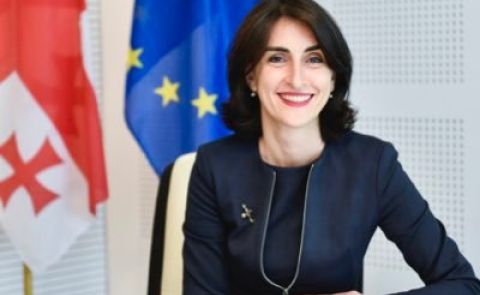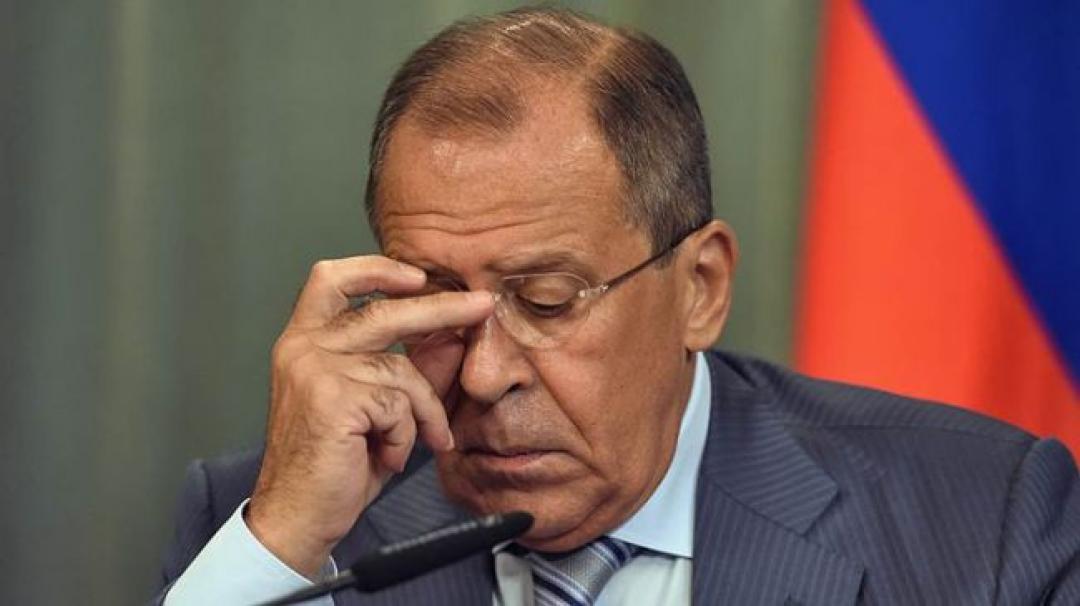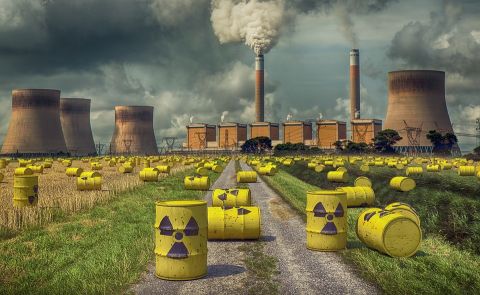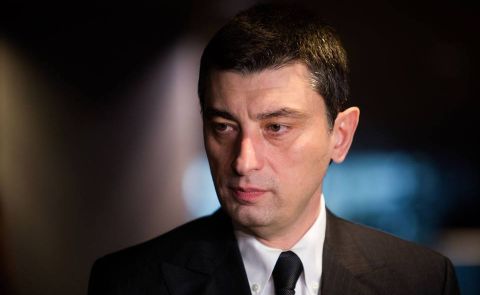
Lavrov’s Yerevan Visit: Support for Armenia’s Security, Russian Military Base, "3+3" Regional Format, CSTO’s Response to 2022 Clashes

On May 21, Armenian Foreign Minister Ararat Mirzoyan met with Russian Foreign Minister Sergey Lavrov in Yerevan, where they signed a 2025-2026 consultation program and discussed deepening allied relations, regional security, the 30th anniversary of the Russian military base in Armenia, the "3+3" regional cooperation platform, and the Nagorno-Karabakh negotiation process, emphasizing mutual respect, continued defense cooperation, and Russia’s readiness to assist Armenia. Prime Minister Pashinyan and President Khachaturyan also held talks with Lavrov, highlighting bilateral ties, economic cooperation, and the importance of stable peace based on mutual benefit and trust.
Ararat Mirzoyan held a meeting with Sergey Lavrov, who was on a working visit to Yerevan. The ministers first had a tête-à-tête meeting, followed by discussions in an enlarged format with the participation of delegations.
Ararat Mirzoyan and Sergey Lavrov signed a Program of Consultations for 2025-2026 between the Ministry of Foreign Affairs of the Republic of Armenia and the Ministry of Foreign Affairs of the Russian Federation.
Following the meeting, the ministers held a joint press conference.
During the press conference, Sergey Lavrov emphasized the enduring allied relations between Armenia and Russia and the deep ties between the two peoples. He highlighted the many achievements across all spheres of bilateral relations that should be fully utilized. Lavrov noted that security remains a critical dimension of their alliance, and Russia stands ready to assist Armenia in ensuring its defense, sovereignty, and territorial integrity.
Lavrov also marked the 30th anniversary of the Russian military base in Armenia and the 10th anniversary of the Russian-Armenian Humanitarian Response Center. He mentioned the continued joint service of Russian border guards with Armenian colleagues on the Armenian-Turkish and Armenian-Iranian borders. The Russian minister praised Prime Minister Pashinyan’s participation in the 80th anniversary Victory celebrations despite threats from some Western officials. He recalled that at the Victory Parade, Russian President Vladimir Putin acknowledged the contribution of the Armenian people to the victory over fascism.
Lavrov expressed gratitude for Armenia’s care of war monuments and the enthusiasm shown during commemorative events such as the "Immortal Regiment" procession. He reiterated the value Russia places on its allied relations with Armenia.
Lavrov discussed regional cooperation, highlighting the potential of the "3+3" platform, which includes the South Caucasus countries alongside Russia, Iran, and Turkey. He recalled that two ministerial meetings have been held in Tehran and Istanbul, with preparations underway for a third forum. He also stressed Russia’s interest in Armenia’s active participation in the Collective Security Treaty Organization (CSTO), noting the 30th anniversary of the Russian military base as a key component of Armenia’s security and emphasizing close contacts among military, law enforcement, and security services.
The Russian minister expressed sincere interest in the full normalization of relations between Yerevan and Baku, calling the trilateral agreements reached between the Presidents of Russia and Azerbaijan and the Armenian Prime Minister in 2020-2022 a solid basis for peace. He welcomed the agreement on the peace treaty’s text and offered Russia’s assistance in resolving outstanding issues, including unblocking transportation and economic communications, border delimitation, and humanitarian matters, always considering each side’s interests.
Lavrov announced that Days of Armenian Culture would be held in Russia in October, underlining the importance of cultural and humanitarian ties, which have been dynamic and well-supported by citizens of both countries. He noted that last year, over 700 cultural events related to Armenia took place in Russia, and the trend continues.
Regarding the "3+3" format, Lavrov stated that the next meetings might be held in Yerevan and Baku, with both Armenia and Azerbaijan willing to host. He expressed optimism about the platform’s potential to strengthen peace, stability, economic and transportation ties, and cultural traditions in the region.
At a press conference in Yerevan, Lavrov revealed lesser-known details about the Nagorno-Karabakh negotiation process. Responding to a question from an Armenian journalist, Lavrov defended Russia’s consistent efforts over the past 20 years, noting proposals to transfer five out of seven Azerbaijani districts while postponing Nagorno-Karabakh’s final status resolution to future generations. He lamented that compromise proposals were rejected, leading to the current situation.
Lavrov rejected the idea of "Ukrainianization" of Armenia, calling Armenia a civilized country that respects the Russian language and ethnic Russians’ rights, unlike Ukraine, where Russian is banned. He emphasized that Armenia does not outlaw the Azerbaijani language and that Armenian is not constitutionally banned in Azerbaijan.
The Russian Foreign Minister responded to Yerevan’s dissatisfaction with the CSTO’s handling of Azerbaijan’s actions in the Jermuk region in September 2022 by detailing the immediate reaction, including sending an advanced group to assess the situation and submitting reports with practical proposals. He recalled that discussions continued at the CSTO summit in October in Yerevan and that Armenia requested postponing the agreed text. Lavrov mentioned the subsequent announcement of the EU mission in November and confirmed that both Armenia and Azerbaijan recognized each other’s territorial integrity based on the Alma-Ata Declaration, a stance confirmed amidst the 2020 conflict.
Ararat Mirzoyan stated that in August 2022, Russia presented a mediation proposal accepted by Armenia but rejected by Azerbaijan. He condemned the September attack as a violation of Armenia’s territorial integrity and noted that both Russia and the CSTO were informed. Mirzoyan assessed the CSTO’s response as unsatisfactory and highlighted the October four-party meeting in Prague, confirming mutual recognition of territorial integrity based on the Alma-Ata Declaration. He also remarked that Armenia’s position on Nagorno-Karabakh has not been widely supported internationally, including by Russia, which has officially recognized the region as part of Azerbaijan.
At a joint press conference, Mirzoyan stressed the importance of respecting the Armenian people’s contribution to the victory over fascism, with 300,000 Armenian casualties. He said denying this contribution would dishonor the memory and make celebrating the victory inappropriate. Regarding Lavrov’s warm reception in Yerevan, Mirzoyan explained that Armenia welcomes guests respectfully, especially long-term colleagues, and while contradictions exist, the focus remains on positive achievements and common interests.
Lavrov responded to a question about Azerbaijan’s use of Russian weapons in conflicts with Armenia and Nagorno-Karabakh, stating that Armenia has used Russian weapons since its independence, including in seizing seven districts it never officially claimed. He noted that some analysts believe there was no plan to return these territories to Azerbaijan. Lavrov also mentioned that Russian weapons are used in Africa and emphasized that the choice of weapon suppliers is Armenia’s prerogative.
Addressing claims about delayed Russian weapons deliveries to Armenia, Lavrov said payments had been offset for other purposes and that new deliveries continue despite difficulties due to the broader European conflict. He stated Russia would not impose restrictions on Armenia’s choice of weapon suppliers but expressed concern if Armenia relied on countries hostile to Russia.
Mirzoyan reaffirmed that Armenia has no plans to reformat allied relations with Russia, stressing that obligations and rights under existing agreements remain valid. He acknowledged concerns about the effectiveness of some mechanisms but rejected any notion of canceling the agreements.
On the same day, a protest organized by the European Party of Armenia took place in front of the Armenian Foreign Ministry, opposing Lavrov’s visit. Protesters carried Armenian and European Union flags and displayed posters with images of Russian President Putin and Foreign Minister Lavrov labeled as "Murderers." Yerevan police cordoned off the area near the Armenian Foreign Ministry building and dispersed participants of the anti-Russian rally to maintain public order during the event.
Meetings with Pashinyan and Khachaturyan
On May 21, Prime Minister Nikol Pashinyan received a delegation led by Russian Foreign Minister Sergey Lavrov to discuss the current state and future development of Armenia-Russia relations.
Pashinyan welcomed the guests and highlighted the ongoing course of bilateral ties. Lavrov expressed gratitude for the reception and reaffirmed Russia’s readiness to further develop relations with Armenia. During their meeting, they discussed the Armenia-Russia bilateral agenda, cooperation within the Eurasian Economic Union (EAEU), and regional as well as international security issues.
In a separate meeting, Vahagn Khachaturyan, the President of the Republic of Armenia, received Sergey Lavrov.
Lavrov conveyed greetings from Russian President Vladimir Putin and expressed hope that the productive negotiations held that day would be well received. He referred to ongoing follow-ups of instructions from both the Russian President and Prime Minister, noting recent reciprocal visits, including that of Armenian Foreign Minister Ararat Mirzoyan to Moscow. Lavrov emphasized that full restoration of contacts had been agreed upon by the leaders last fall and stated that the Ministry of Foreign Affairs was diligently fulfilling this directive.
He assessed the discussions as "very useful and open," emphasizing the importance of honest and transparent dialogue even on nuanced matters, which would facilitate the implementation of mutually beneficial agreements. Lavrov described Armenia and Russia as allies and strategic partners and affirmed their commitment to allied relations and obligations, calling the meeting a significant and constructive political moment.
In response, President Khachaturyan expressed gratitude for Lavrov’s visit, describing it as highly significant for bilateral relations. He noted positive developments in Armenia-Russia ties earlier in the year and expressed confidence that these trends would continue. Khachaturyan thanked Lavrov for President Putin’s greetings and requested that his own warm regards be conveyed in return. Recalling their last meeting in Turkmenistan, he valued the positive aspects of the relationship and stressed the need to continue such progress.
Khachaturyan emphasized that relations must develop under mutually beneficial conditions and that open, honest dialogue is essential to resolve any misunderstandings. He noted upcoming events such as the anticipated visit of Valentina Matvienko to Armenia and the planned Days of Armenian Culture in Russia as important milestones for bilateral engagement.
He expressed confidence that both countries’ leadership was taking steps to deepen cooperation across all sectors. Khachaturyan highlighted the importance of bilateral proposals on regional issues and security development, viewing Lavrov’s visit as a positive contribution to strengthening ties.
According to the Presidential Office, the discussions also covered enhancing multifaceted cooperation, with particular focus on economic and decentralized cooperation, investment promotion, and infrastructure development. The parties exchanged views on the regional situation, underscoring the importance of establishing stable and lasting peace. They agreed that Armenia-Russia cooperation should be based on mutual benefit, respect, and trust.
See Also


Pashinyan: “We Are Not Seeking to End Russian Troop Presence in Armenia”

Russia Begins 24/7 Radiation Monitoring in Dagestan After Iranian Nuclear Incident

How Do Caucasus States React to Israel-Iran War?

Weekly Brief on Military Situation in the South Caucasus (9–15 June 2025)

